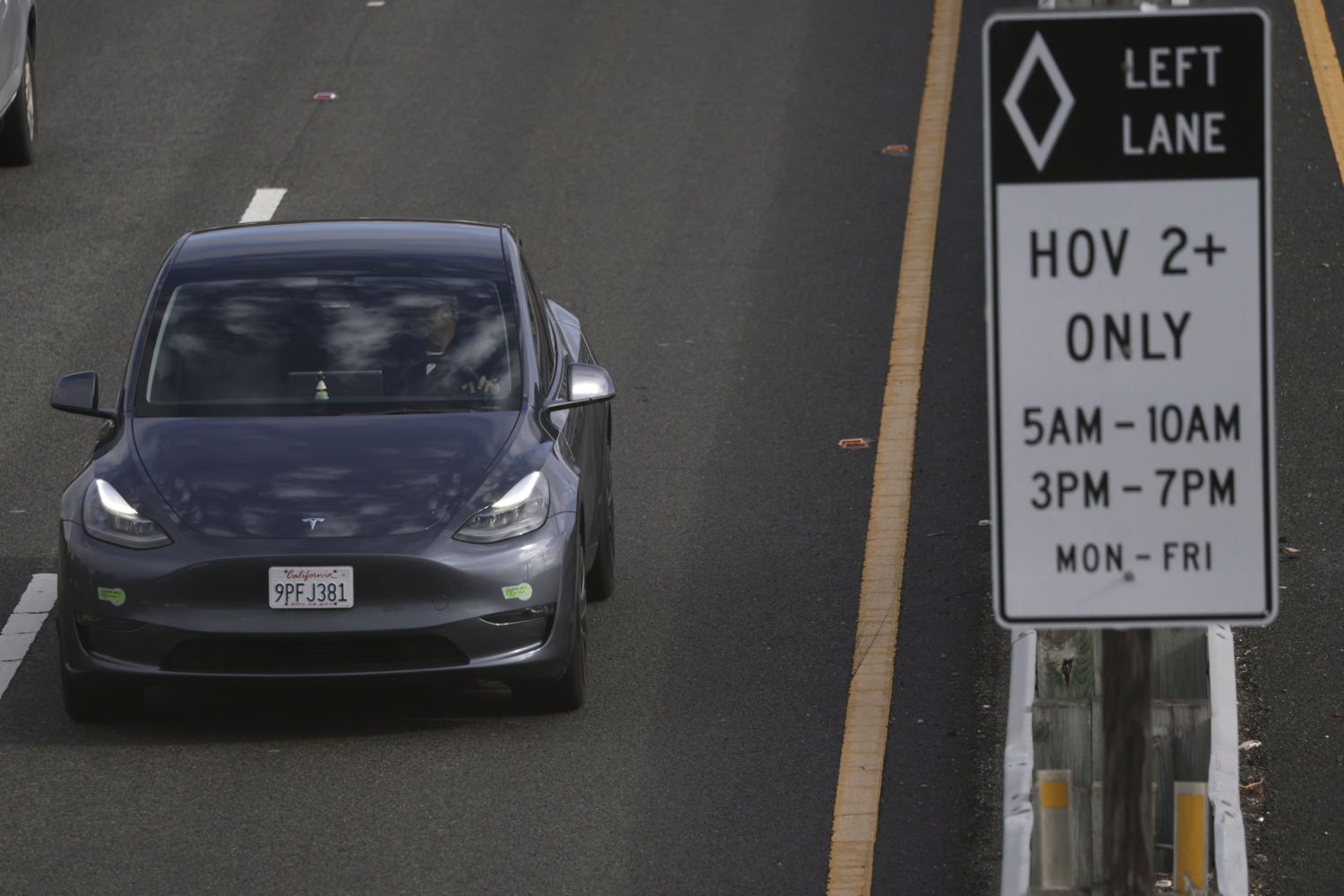By ALEXA ST. JOHN Associated Press
DETROIT (AP) — Making electric vehicles and their batteries is a dirty process that uses a lot of energy. But a new study says that EVs quickly make up for that with less overall emissions through two years of use than a gas-powered vehicle.
The study also estimated that gas-powered vehicles cause at least twice as much environmental damage over their lifetimes as EVs, and said the benefits of EVs can be expected to increase in coming decades as clean sources of power, such as solar and wind, are brought onto the grid.
The work by researchers from Northern Arizona University and Duke University, published Wednesday in the journal PLOS Climate, offers insight into a transportation sector that makes up a big part of U.S. emissions. It also comes as some EV skeptics have raised concerns about whether the environmental impact of battery production, including mining, makes it worthwhile to switch to electric.
“While there is a bigger carbon footprint in the very short term because of the manufacturing process in creating the batteries for electric vehicles, very quickly you come out ahead in CO2 emissions by year three and then for all of the rest of the vehicle lifetime, you’re far ahead and so cumulatively much lower carbon footprint,” said Drew Shindell, an earth science professor at Duke University and study co-author.
What the researchers examined
The researchers evaluated several harmful air pollutants monitored by the Environmental Protection Agency, as well as emissions data, to compare the relative impact over time of EVs and internal combustion engines on air quality and climate change.
Their analysis said that EVs produce 30% higher carbon dioxide emissions than gasoline vehicles in their first two years. That can be attributed to the energy-intensive production and manufacturing processes involved in mining lithium for EV batteries.
They also sought to account for how the U.S. energy system might develop in coming years, assuming growth in clean energy. And they modeled four different scenarios for EV adoption, ranging from the lowest — a 31% share of vehicle sales — to the highest, 75% of sales, by 2050. (EV sales accounted for about 8% of new vehicle sales in the U.S. in 2024.)
The researchers said the average of those four models found that for each additional kilowatt hour of lithium-ion battery output, carbon dioxide emissions drop by an average of 220 kilograms (485 pounds) in 2030, and another 127 kilograms (280 pounds) in 2050.
The consistent decrease in CO2 emissions from EVs is “not only driven by the on-road vehicles, but also reduction that has been brought due to electricity production,” said lead author Pankaj Sadavarte, a postdoctoral researcher at Northern Arizona University.
Greg Keoleian, a University of Michigan professor of sustainable systems who wasn’t involved in the research, called it a “valuable study” that echoes other findings and “confirms the environmental and economic benefits” of EVs.
“Accelerating the adoption of battery electric vehicles is a key strategy for decarbonizing the transportation sector which will reduce future damages and costs of climate change,” he said.
Researchers take optimistic view of the grid’s future
Shindell, the Duke researcher, said the grid will evolve to have more solar and wind power.
“When you add a bunch of electric vehicles, nobody’s going to build new coal-fired power plants to run these things because coal is really expensive compared to renewables,” he said. “So the grid just overall becomes much cleaner in both the terms of carbon emissions for climate change, and for air pollution.”
Outside experts agreed — as long as the policy landscape supports it. That hasn’t been the case under President Donald Trump, who has worked to boost fossil fuels and restrain solar and wind power development.
“The great news is the rest of the world isn’t slowing down in terms of its embrace of this technology,” said Ellen Kennedy, principal for carbon-free transportation at RMI, a clean energy nonprofit. As for the U.S., she said, “I think it’s important to keep in mind states and local governments, there’s a lot that’s happening on those fronts.”
One thing the study didn’t address was recycling or disposal of batteries at the end of their life. Kennedy said battery recycling will improve, helping to address one of the environmental impacts of their production.
A challenging time for EVs in the United States
The study comes at a notable time given the challenges that EVs face in the U.S.
EVs have seen more interest in recent years as an alternative to gas-powered cars and trucks — particularly as they become more affordable and charging infrastructure becomes more available.
But growth has slowed amid shifting federal policy toward EVs and an industry step back from ambitious EV production promises.
Former President Joe Biden set a target for 50% of all new vehicle sales in the U.S. to be electric by 2030. But Trump reversed that policy, and Congress has terminated federal tax credits for an EV purchase. The administration has also targeted vehicle pollution rules that would encourage greater uptake of EVs in the U.S., and the president has attempted to halt a nationwide EV charging buildout.
“The study is important to show how really misguided the current administration’s policies are,” Shindell said. “If we want to protect us from climate change and from the very clear and local damage from poor air quality, this is a really clear way to do it: Incentivize the switch from internal combustion engines to EVs.”
___
Alexa St. John is an Associated Press climate reporter. Follow her on X: @alexa_stjohn. Reach her at [email protected].
___
Read more of AP’s climate coverage.
___
The Associated Press’ climate and environmental coverage receives financial support from multiple private foundations. AP is solely responsible for all content. Find AP’s standards for working with philanthropies, a list of supporters and funded coverage areas at AP.org.





